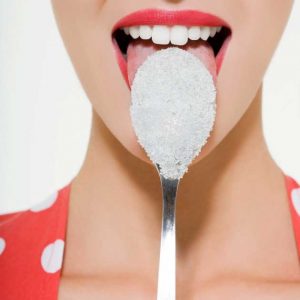Ever wonder why some people seem to have effortlessly glowing skin while the rest of us are left battling breakouts and dullness? Well, the secret might just be in their diet!
That’s right—what you eat can have a huge impact on your skin’s health, thanks to something called the skin microbiome. But don’t worry, you don’t need a Ph.D. to understand it, and you definitely don’t need to give up all your favorite foods (well, maybe just a little less sugar).
So, what is this skin microbiome? And what’s the impact of diet on skin microbiome health? Think of your microbiome as a bustling city of tiny organisms living on your skin.
These bacteria, fungi, and viruses play a big role in keeping your skin healthy and glowing. When the microbiome is balanced, your skin is happy.
But when things go out of whack, you might see more breakouts, dryness, or even redness. And guess what? Your diet plays a major part in keeping this city running smoothly.
In this article, we’re diving into the tasty details of how your food choices affect your skin. We’ll chat about the best foods to munch on for a healthy skin microbiome, and we’ll also tackle the tough stuff like the effects of sugar (spoiler: it’s not great).
Plus, we’ll talk about how quickly you can expect to see changes once you start eating better, signs that your diet is affecting your skin, and whether drinking more water really makes a difference.
By the end, you’ll have all the info you need to eat your way to better skin. So grab a snack (a healthy one, of course), get comfy, and let’s explore how to nourish your skin from the inside out. Your glowing, radiant skin is just a few bites away!
Which Foods Are Best for a Healthy Skin Microbiome?
Probiotics
Probiotic-rich foods are essential for a healthy skin microbiome. These foods introduce beneficial bacteria that can help balance the skin’s ecosystem. Some excellent sources of probiotics include:
- Yogurt: Look for varieties with live and active cultures.
- Kefir: A fermented milk drink packed with probiotics.
- Sauerkraut: Fermented cabbage that is rich in probiotics.
- Kimchi: A spicy Korean dish made from fermented vegetables.
- Miso: A Japanese seasoning made from fermented soybeans.
Prebiotics
Prebiotics are non-digestible fibers that feed the beneficial bacteria in your gut and skin. Foods rich in prebiotics include:
- Garlic: Adds flavor and supports good bacteria.
- Onions: Another flavorful source of prebiotics.
- Leeks: Great for soups and stews, and rich in prebiotics.
- Asparagus: A delicious vegetable that also supports the microbiome.
- Bananas: A convenient and tasty prebiotic-rich fruit.
Antioxidant-Rich Foods
Antioxidants help protect your skin from damage and support a healthy microbiome. Some antioxidant-rich foods are:
- Berries: Blueberries, strawberries, and raspberries are excellent choices.
- Green Tea: Contains powerful antioxidants called catechins.
- Dark Chocolate: Look for high cocoa content (70% or higher).
- Spinach: A leafy green that’s versatile and nutritious.
- Nuts and Seeds: Almonds, walnuts, and chia seeds are good options.
Omega-3 Fatty Acids
Omega-3 fatty acids have anti-inflammatory properties that can benefit the skin microbiome. Foods high in omega-3s include:
- Fatty Fish: Salmon, mackerel, and sardines are top choices.
- Chia Seeds: Great in smoothies, salads, or as a pudding.
- Flaxseeds: Can be added to cereals or baked goods.
- Walnuts: A handy snack that supports skin health.
- Algae: For those who prefer plant-based sources.
How Does Sugar Affect the Skin Microbiome?
The Downside of Sugar
Excessive sugar intake can harm your skin microbiome. High sugar levels can lead to:
- Inflammation: Sugar can increase inflammation, which disrupts the skin’s microbiome balance and exacerbates conditions like acne and eczema.
- Glycation: This process involves sugar molecules binding to proteins and fats, forming harmful compounds that damage collagen and elastin, leading to premature aging.
- Imbalance in Gut Microbiome: An overabundance of sugar can disrupt the gut microbiome, which in turn can negatively impact the skin microbiome.
Cutting Back on Sugar
Reducing sugar intake can significantly benefit your skin. Try to:
- Limit Sugary Drinks: Opt for water, herbal teas, or beverages with no added sugars.
- Avoid Processed Foods: These often contain hidden sugars.
- Read Labels: Check for sugars listed under different names, such as fructose, sucrose, and corn syrup.
- Choose Natural Sweeteners: Use alternatives like honey or stevia in moderation.

Can Hydration and Water Intake Impact Skin Microbiome Health?
Importance of Hydration
Hydration is crucial for maintaining a healthy skin microbiome. Adequate water intake helps:
- Maintain Skin Moisture: Hydrated skin is less likely to become dry and irritated, providing a better environment for beneficial microorganisms.
- Support Detoxification: Water helps flush out toxins that can disrupt the skin microbiome.
How Much Water Is Enough?
The general recommendation is to drink at least 8 glasses (64 ounces) of water per day. However, individual needs can vary based on factors like activity level, climate, and overall health. Listen to your body and ensure you stay well-hydrated.
Additional Hydration Tips
- Eat Water-Rich Foods: Foods like cucumbers, watermelon, and strawberries can contribute to your daily hydration.
- Limit Dehydrating Drinks: Reduce intake of caffeinated and alcoholic beverages that can dehydrate the skin.
Are There Any Diets That Are Harmful to the Skin Microbiome?
High-Sugar Diets
As mentioned earlier, diets high in sugar can disrupt the skin microbiome. Besides the immediate effects of increased inflammation and glycation, long-term high sugar consumption can lead to chronic skin conditions.
Highly Processed Foods
Diets rich in processed foods can be detrimental to skin health. These foods often contain preservatives, additives, and unhealthy fats that can:
- Reduce Good Bacteria: Processed foods can decrease the diversity of beneficial bacteria in your gut and skin microbiome.
- Increase Inflammation: Many additives and unhealthy fats promote inflammation.
Low-Fiber Diets
Fiber is essential for gut health, which directly impacts the skin microbiome. A diet low in fiber can:
- Starve Good Bacteria: Without enough fiber, beneficial bacteria in the gut and skin can diminish, leading to imbalances.
- Increase Toxins: Low fiber intake can slow down digestion and toxin elimination, leading to skin issues like acne and dullness.
High-Fat Diets
Not all fats are bad, but diets high in unhealthy fats (like trans fats and saturated fats) can negatively affect the skin microbiome:
- Increase Inflammation: These fats can lead to higher levels of inflammation.
- Clog Pores: Excessive unhealthy fats can contribute to clogged pores and acne.

How Quickly Can Diet Changes Affect the Skin Microbiome?
Immediate Effects
Some dietary changes can have almost immediate effects on your skin. For example:
- Hydration: Increasing your water intake can improve skin hydration within days, which may enhance the skin microbiome’s environment.
- Reduced Sugar: Cutting back on sugar can reduce inflammation relatively quickly, often within a few days to a week.
Short-Term Changes
Other dietary adjustments may take a few weeks to show visible results. These include:
- Adding Probiotics and Prebiotics: Introducing these foods can start to balance the skin microbiome within a few weeks.
- Increasing Fiber Intake: Improved digestion and microbiome balance from more fiber may take a couple of weeks to become noticeable.
Long-Term Benefits
For sustained changes and lasting skin health, dietary habits need to be maintained over the long term. Significant improvements in chronic skin conditions might take months of consistent healthy eating.
What Are the Signs That My Diet Is Affecting My Skin Microbiome?
Positive Signs
When your diet is positively affecting your skin microbiome, you might notice:
- Clearer Skin: Fewer breakouts and a more even complexion.
- Radiant Complexion: A healthy glow and improved texture.
- Reduced Inflammation: Less redness and irritation.
- Better Hydration: More supple and moisturized skin.
Negative Signs
If your diet is negatively impacting your skin microbiome, look for these signs:
- Increased Breakouts: More frequent or severe acne.
- Dull Skin: Lack of radiance and rough texture.
- Redness and Irritation: More frequent flare-ups of conditions like eczema or rosacea.
- Dryness or Oiliness: Imbalanced skin hydration.
Conclusion
Understanding how diet impacts your skin microbiome is key to having beautiful, healthy skin. Eating foods rich in probiotics and prebiotics, cutting down on sugar, avoiding harmful diets, and staying hydrated are all important steps.
Pay attention to how your diet affects your skin, and make changes as needed to support a balanced and healthy skin microbiome. By making these healthy choices, you’ll be on your way to clearer, more radiant skin.
Your journey to better skin starts with what you eat. Remember, what you put into your body directly affects how your skin looks and feels.
By choosing the right foods, you can create a healthy skin microbiome that keeps you looking and feeling great. Plus, staying hydrated and eating a balanced diet will boost your energy, mood, and overall health.
Changes won’t happen overnight, so be patient and consistent. Watch how your skin responds to dietary changes and give it time. If needed, talk to a dermatologist or nutritionist for advice that fits your specific needs and skin type.
Adding these healthy eating habits to your daily routine can lead to long-lasting improvements in your skin. Embrace the power of good nutrition, and watch your skin transform. Here’s to a glowing, vibrant complexion and a healthier you!
I’d love to hear from you! Share your experiences with diet and skin health in the comments below. What changes have you made? How has your skin responded? Join our community of health enthusiasts and let’s support each other on this journey.
Don’t forget to subscribe to my newsletter for more nutrition and lifestyle tips. Embrace change and let your skin shine with health from within!
***Disclaimer: This post is for informational purposes only and should not be construed as medical advice***




